Let survivors make their own choices.
Supporting victims/survivors of sexual violence: A collective, achievable effort
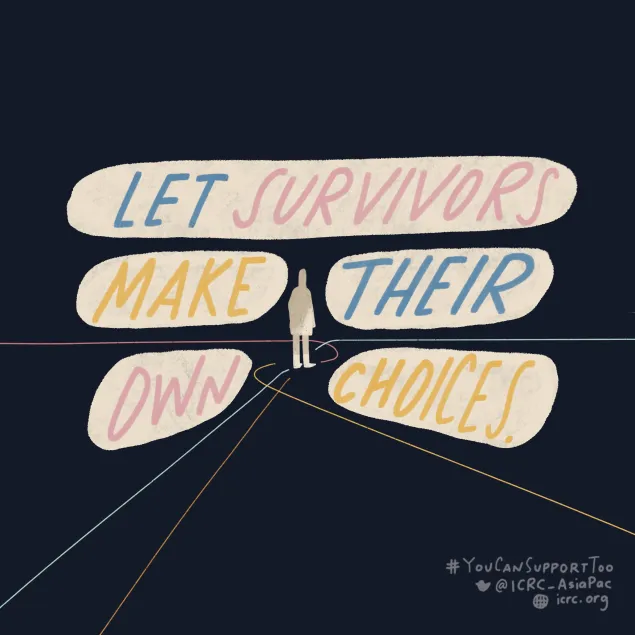
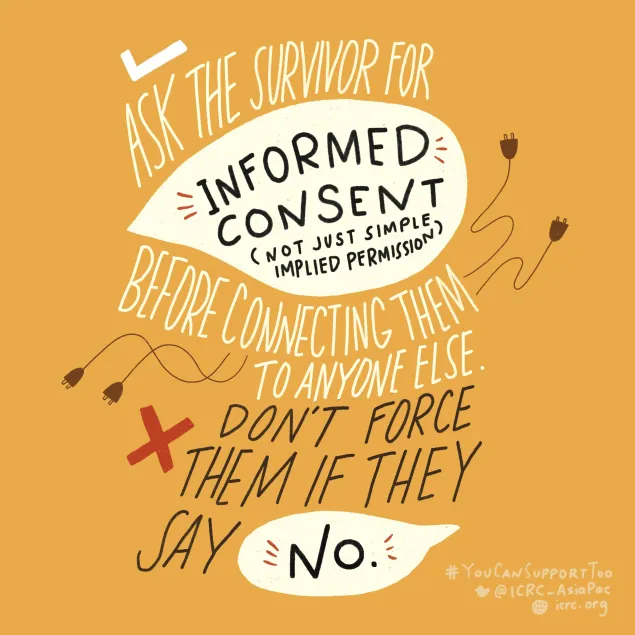
Ask the survivor for informed consent (not just simple implied permission) before connecting them to anyone else. Don’t force them if they say “no”.
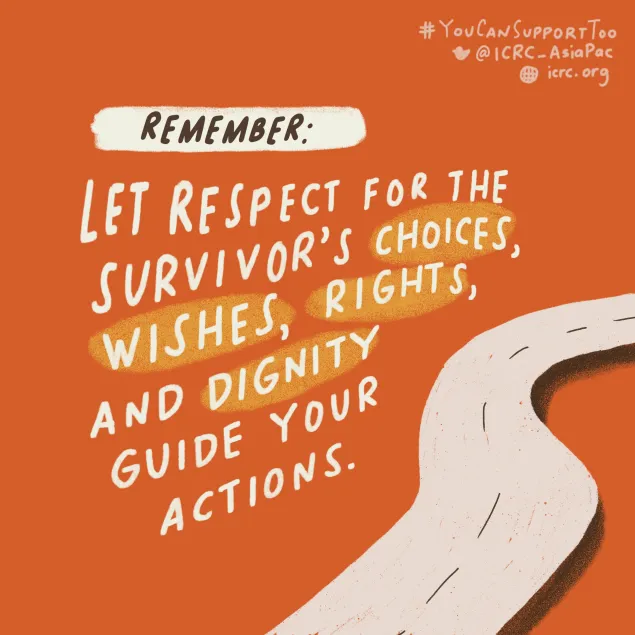
Let respect for the survivor’s choices, wishes, rights and dignity guide your actions.
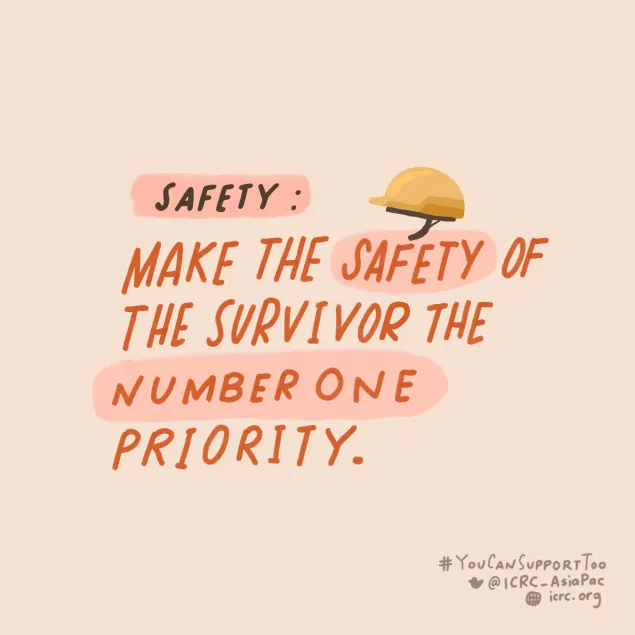
Make the safety of the survivor the number one priority.
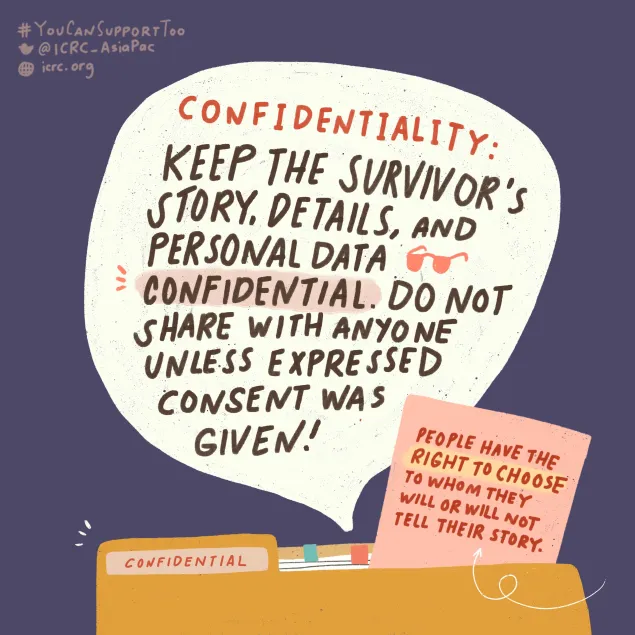
Keep the survivor’s story, details and personal data confidential. Do not share with anyone unless explicit consent was given.
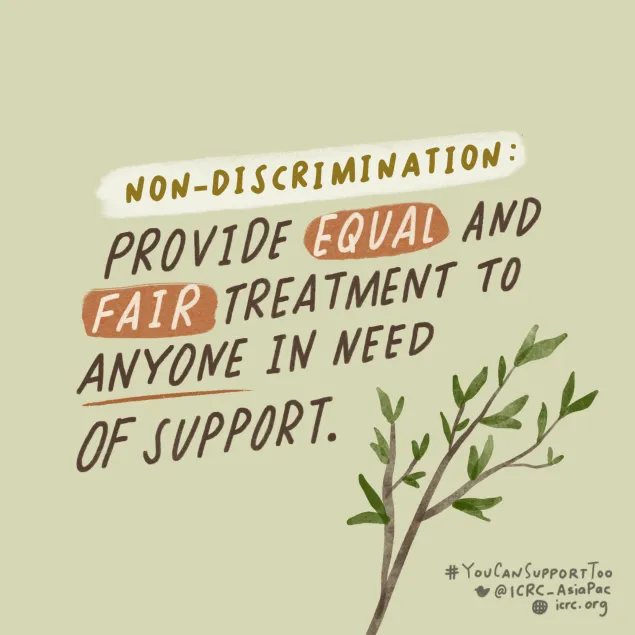
Provide equal and fair treatment to anyone in need of support.
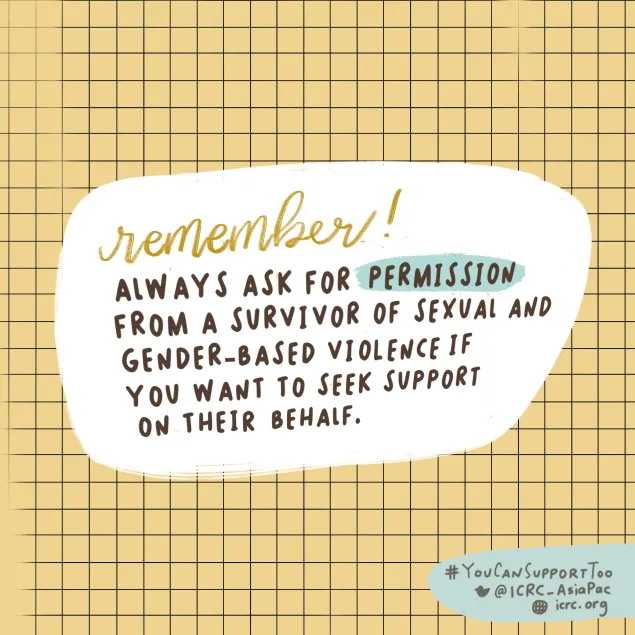
Always ask for permission from a survivor of sexual and gender-based violence if you want to seek support on their behalf.
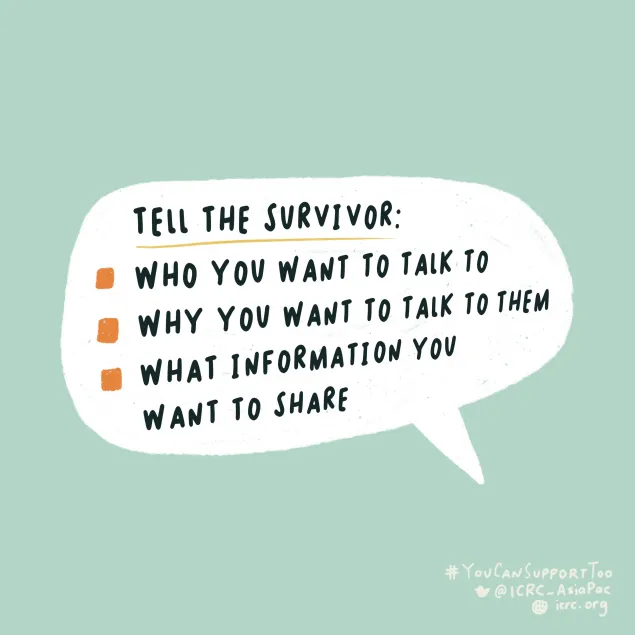
Tell the survivor: who you want to talk to, why you want to talk to them and what information you want to share.
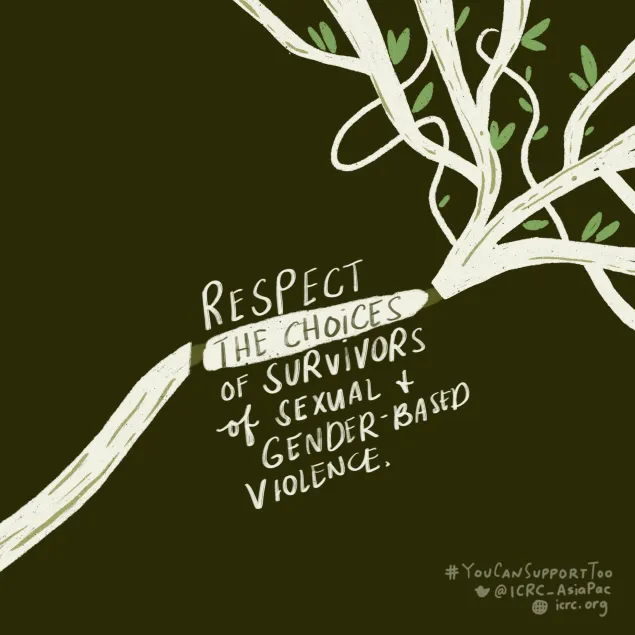
Respect the choices of survivors of sexual and gender-based violence.
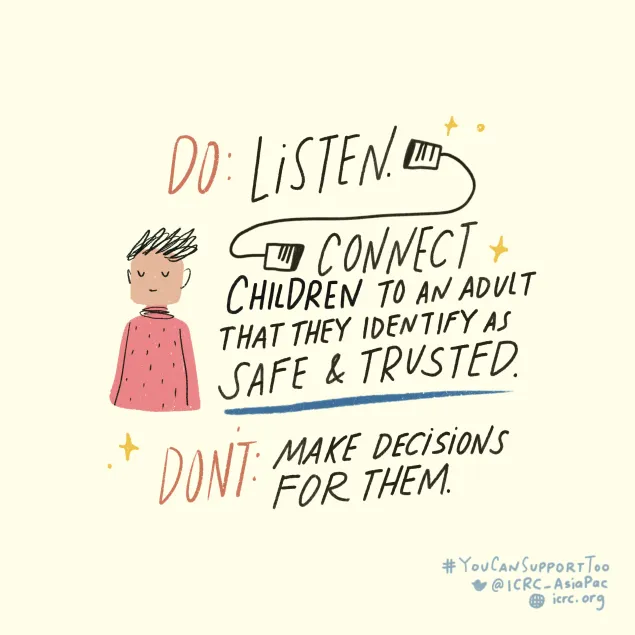
Do: Listen and connect children to an adult that they identify as safe and trusted.
Don’t: Make decisions for them.
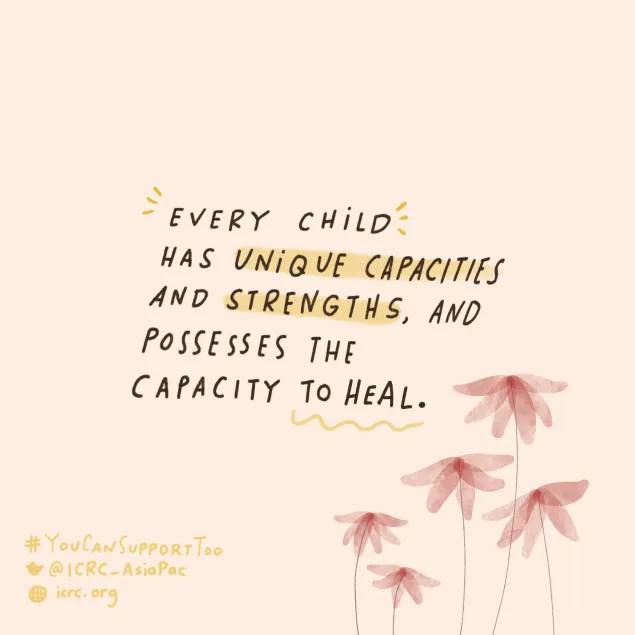
Every child has unique capacities and strengths, and possesses the capacity to heal.
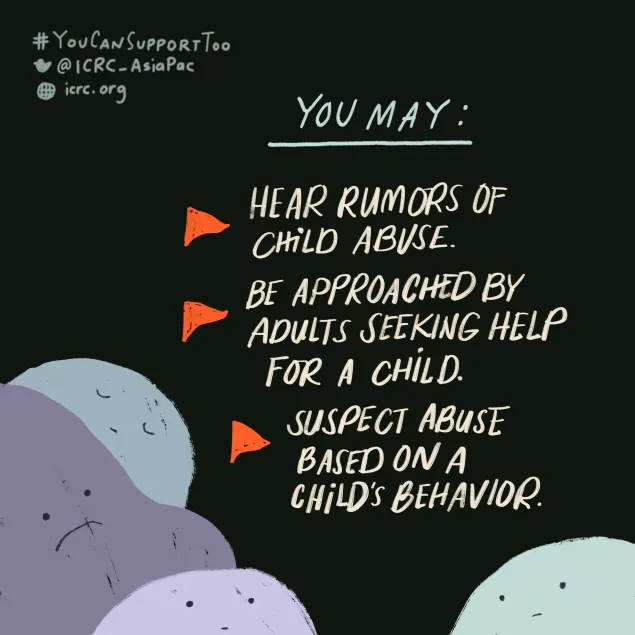
You may: Hear rumours of child abuse, be approached by adults seeking help for a child, and suspect abuse based on a child’s behaviour.
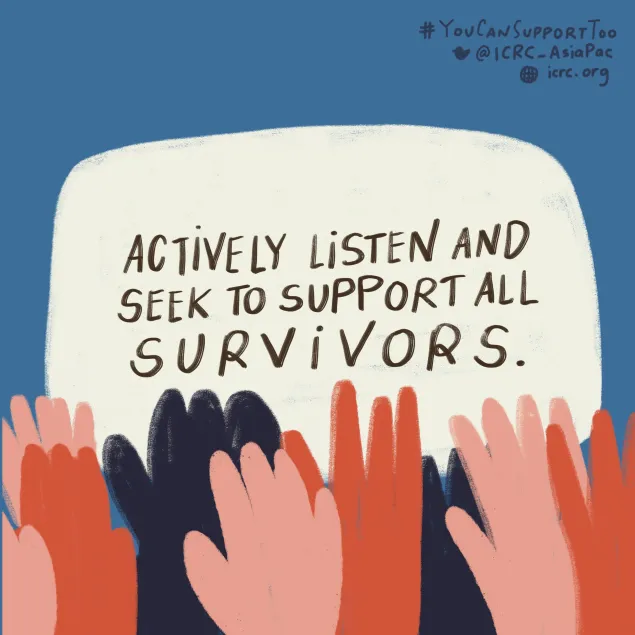
Actively listen and seek to support all survivors.
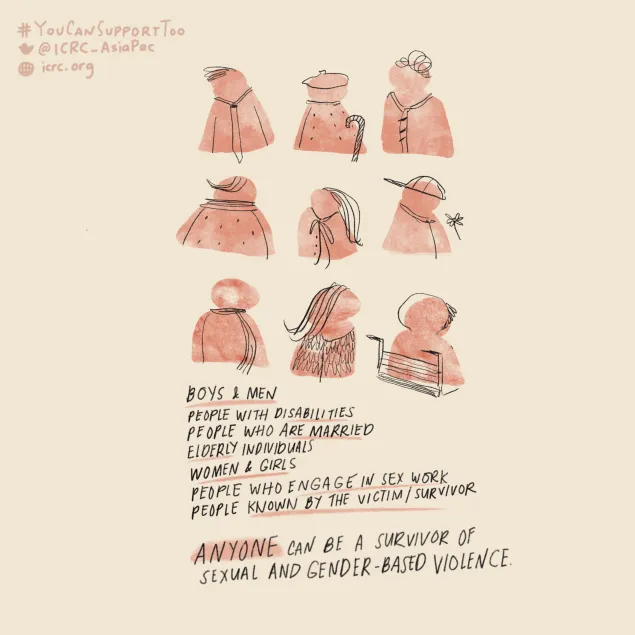
Boys and men. People with disabilities. People who are married. Elderly individuals. Women and girls. People who engage in sex work. People known by the victim/survivor.
Anyone can be a survivor of sexual and gender-based violence.
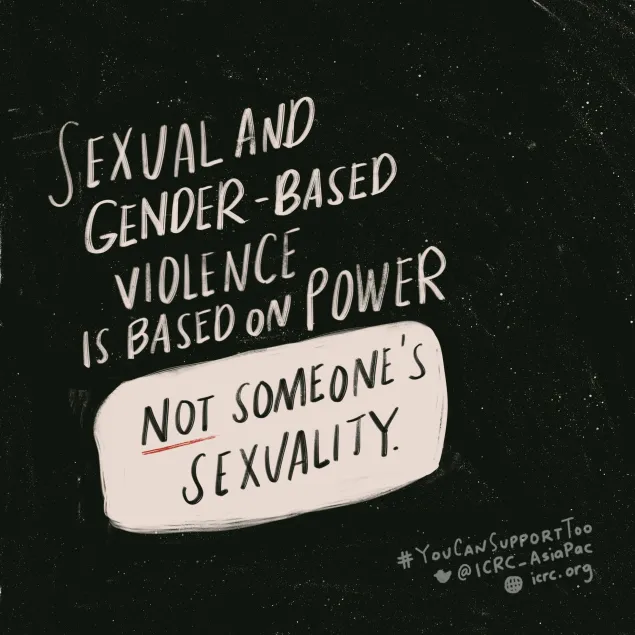
Sexual and gender-based violence is based on power, not someone’s sexuality.
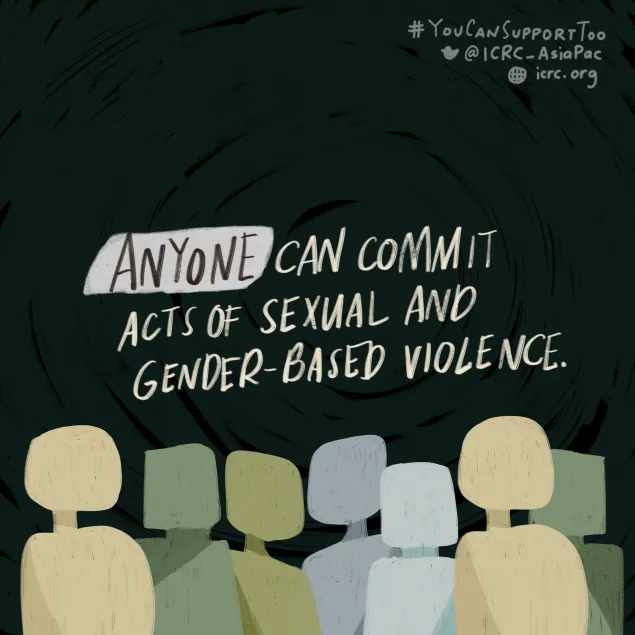
Anyone can commit acts of sexual and gender-based violence.
We cannot imagine the traumatic experiences that victims/survivors of sexual and gender-based violence undergo or their journeys of recovery. But what we can do is help them access quality support.
Sexual and gender-based violence is a widespread phenomenon, especially in places affected by conflict and violence. The 2020 Conflict-related sexual violence: Report of the United Nations Secretary-General has documented over 2,500 cases of sexual violence in 18 countries (1) — but sexual and gender violence remains pervasive during peacetime too.
According to the World Health Organization, one in three women has encountered sexual violence in their lifetime. In the Asia-Pacific region, according to the United Nations Population Fund data, 15 to 68 per cent of women have experienced physical or sexual violence by intimate or not intimate partners (2).
The COVID-19 pandemic, which has caused widespread economic and social disruption, has been devastating on many levels. It is now well-documented that there has also been an increase in sexual violence in places affected by conflict and violence, coupled with a reduction of services available for victims and survivors (3).
However, official statistics only reflect the tip of the iceberg and do not capture the magnitude of the situation, which includes a diverse group of victims comprising not only women and girls, but also men, boys and other sexual and gender minorities.
In addressing sexual violence, the International Committee of the Red Cross (ICRC), like many other organizations, uses an approach that places victims/survivors at the centre of the response. Ensuring access to services for victims/survivors is our priority. In some cases, services can be provided directly, while in others the victims/survivors are referred to external services.
In humanitarian settings, the possibility of encountering victims/survivors of sexual and gender-based violence is very high. Even with limited expertise in sexual and gender-based violence, humanitarian workers can play an important role in referring victims/survivors to appropriate services, including health care and mental health support. Being prepared and having reliable information to share with victims/survivors on available services are also key elements in providing this support.
Additionally, when safe and timely referral is not possible because of a lack of services and/or security challenges, each one of us, as individuals or in our professional capacities, can still provide support to victims/survivors of sexual violence. This support can range from active empathetic listening to non-discrimination or judgement and other forms of unbiased emotional support.
The ICRC has developed a series of illustrations accompanied by key messages (4) to support the work of humanitarians and help development organizations, authorities, communities and individuals to approach and support victims/survivors of sexual and gender-based violence in a dignified way. Life-changing support can start with small but achievable steps.
(2) https://asiapacific.unfpa.org/en/knowvawdata
(3) For details, refer to Sexual Violence in Armed Conflict: Can we prevent a COVID-19 backslide?: https://blogs.icrc.org/law-and-policy/2020/11/25/sexual-violence-covid-19-backslide/
(4) The messages are partly inspired by the GBV Pocket Guide.



